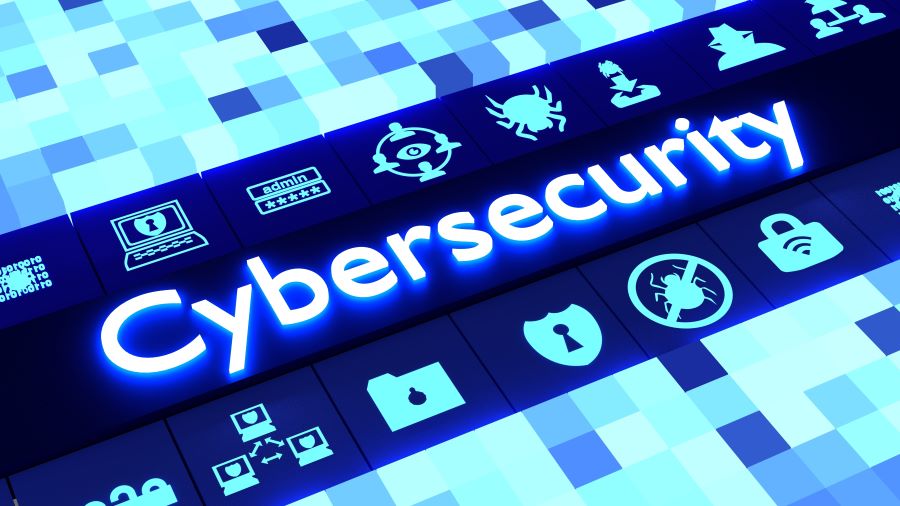Cyber Security Education Training in Delhi

Cyber Security Education Training in Delhi
Cyber Security Education Training in Delhi
Want to get the best Cyber Security Education Training in Delhi? You are at the right place. Here, we will discuss how you can get the best experience for cybersecurity training. Moreover, several organizations have already announced the need for professionals in cybersecurity.
In the end, we will talk about the latest cybersecurity tools used by experts with years of experience. Let’s search for the best way to attain such amazing skills!
What is Cyber Security?
The technique of preventing unwanted access, theft, destruction, or misuse of computer systems, networks, and digital data is known as cybersecurity. To guarantee the availability, confidentiality, and integrity of information, a variety of technologies, procedures, and practices must be put into place.
In essence, it’s about protecting our digital assets and lives from an increasingly dangerous cyber environment. Let’s talk about “Cyber Security Education Training in Delhi!”

Topics Covered in Cyber Security
The following are some of the topics covered in cybersecurity:
- Network Security: Preventing unwanted access, abuse, or interference with computer networks and their infrastructure. VPNs, intrusion detection/prevention systems, and firewalls are all included in this.
- Endpoint Security: Protecting end-user electronics against danger, including laptops, desktop computers, and mobile devices. This includes mobile device management, EDR programs, and antivirus software.
- Application Security: Concentrating on software application security at every stage of development to avoid flaws like cross-site scripting and SQL injection.
- Data Security and Information Protection: Putting data loss prevention (DLP), access controls, and encryption into practice as safeguards for digital data.
- Identity and Access Management (IAM): Utilizing account management, permission, and authentication to manage user identities and restrict access to resources.
- Threat Intelligence: Collecting and evaluating data on possible and existing threats to prevent cyberattacks before they happen.
- Incident Response: Putting in place processes and tools to identify, evaluate, contain, eliminate, and recover from security events.
- Governance, Risk, and Compliance (GRC): Creating and putting into practice frameworks to control cybersecurity risks, follow legal requirements, and guarantee company continuity.
- Cryptography: Employing encryption methods to protect the authenticity, integrity, and confidentiality of data.
- Cybersecurity Awareness and Training: Reducing human error and promoting a security-conscious culture by teaching users about prevalent threats and best practices.

Advanced Cyber Security Programs
| S.No. | Programs | What? |
| 1. | Certified Information Systems Security Professional (CISSP) | A well-known certification for seasoned security experts that covers a wide range of security topics. |
| 2. | Certified Information Security Manager (CISM) | Focuses on the information security management facets. |
| 3. | Certified Information Systems Auditor (CISA) | For experts who work in business and IT systems audits, control, and evaluation. |
| 4. | CompTIA Security+ | An entry-level certification that attests to basic security knowledge. |
| 5. | Certified Ethical Hacker (CEH) | Emphasizes penetration testing methods and offensive security. |
| 6. | GIAC (Global Information Assurance Certification) | Provides a range of specialist credentials in fields such as digital forensics, intrusion analysis, and incident handling. |
| 7. | Certified Cloud Security Professional (CCSP) | For experts with a focus on cloud security. |
| 8. | Microsoft Certified: Cybersecurity Architect Expert | For architects creating and executing Zero Trust-based security solutions. |
Top Cyber Security Institutes in Delhi
Following are some of the Top Cyber Security Institutes in Delhi:
- Craw Security: Renowned for emphasizing hands-on training and offering extensive cybersecurity courses.
- Bytecode Security: Provides specific instructions in fields like application security and penetration testing.
- Craw Academy: Offers training courses and a range of cybersecurity certifications for varying skill levels.
- APTRON Delhi: Provides cybersecurity and IT training with an emphasis on skills that apply to the industry.
Certification Benefits
| S.No. | Benefits | How? |
| 1. | Enhanced Career Prospects | A certification verifies your abilities and expertise, increasing your appeal as a candidate for cybersecurity positions and possibly opening up more favorable employment prospects. |
| 2. | Increased Earning Potential | Because of their proven expertise and usefulness to firms, certified professionals sometimes earn higher compensation than their non-certified colleagues. |
| 3. | Industry Recognition and Credibility | In the cybersecurity sector, certifications from respectable organizations are highly valued and acknowledged, which enhances your reputation and professional credibility. |
| 4. | Demonstrated Commitment to Professional Development | Your commitment to being up to date with the newest cybersecurity trends, technologies, and best practices is demonstrated by your pursuit and accomplishment of certifications. |
| 5. | Improved Skills and Knowledge | Studying for and passing a certification exam frequently results in a stronger comprehension of cybersecurity principles and useful abilities that you may use right away at work. |
Why Delhi Is the Best Place to Learn Cyber Security?
Delhi is the best place to learn cybersecurity for the following reasons:
- Hub of Educational Institutions: With a large number of respectable cybersecurity training facilities and colleges offering specialized courses and certifications, Delhi NCR offers a variety of educational opportunities.
- Thriving IT and Startup Ecosystem: Being a large city, Delhi is home to a sizable number of government agencies, IT firms, and startups, which increases demand for cybersecurity specialists and opens up work chances after training.
- Growing Cybersecurity Awareness: In Delhi, cybersecurity is becoming more and more important in many areas due to India’s expanding digitization and cyber threats, which is creating more specialized training programs and employment opportunities.
- Accessibility and Affordability: Delhi offers comparatively more accessible and reasonably priced cybersecurity education as compared to certain other international centers, which makes it a good choice for a wider range of prospective professionals.
- Networking Opportunities: Delhi is home to several tech conferences, seminars, and events that offer beneficial networking chances with cybersecurity industry professionals and possible employers.
Importance of Hands-on Labs in Cyber Security
| S.No. | Factors | Why? |
| 1. | Practical Skill Development | Labs offer a secure and regulated setting for putting theoretical knowledge into practice, enabling students to gain hands-on experience in areas such as incident response, network configuration, and penetration testing. |
| 2. | Real-World Scenario Simulation | Students are better equipped to recognize, evaluate, and counteract real attacks thanks to practical activities that frequently replicate real-world cyberthreats and security issues. |
| 3. | Tool Familiarization | To gain essential technical expertise, labs provide the chance to work with industry-standard cybersecurity tools and technologies, including Wireshark, Nmap, Metasploit, and SIEM systems. |
| 4. | Enhanced Problem-Solving Abilities | Students get the critical thinking and problem-solving abilities necessary for a cybersecurity professional by actively participating in security scenarios and debugging problems in a lab environment. |
| 5. | Confidence Building | By bridging the gap between theory and practice, completing practical labs strengthens learning and increases confidence in one’s capacity to apply cybersecurity concepts and procedures in real-world scenarios. |
Government Cyber Security Initiatives in India
The following are some of the initiatives in India taken by the government related to cybersecurity:
- Indian Computer Emergency Response Team (CERT-In): To protect Indian cyberspace, CERT-In, the national nodal agency for reacting to cybersecurity incidents, is essential for incident prevention, response, and advisory services.
- National Cyber Security Strategy 2020: By bolstering regulatory structures, improving capacities, encouraging research and development, and safeguarding vital information infrastructure, this policy framework seeks to establish a safe and resilient cyberspace.
- Cyber Surakshit Bharat Initiative: The goal of this program is to increase cybersecurity awareness and strengthen the capabilities of IT officials and Chief Information Security Officers (CISOs) in various government agencies.
- Cyber Swachhta Kendra (Botnet Cleaning and Malware Analysis Centre): This program, run by CERT-In, gives individuals and businesses free tools and resources to help them identify and eliminate malware and botnets from their devices.
- National Cyber Crime Reporting Portal (cybercrime.gov.in): This website facilitates law enforcement action by enabling citizens to report cybercrime events online, with a particular emphasis on crimes against women and children.
Career Scope After Cyber Security Training
In a profession that is growing quickly, a cybersecurity training program opens doors to a variety of attractive employment options. Among other positions, you can work as a security consultant, security engineer, security analyst, penetration tester, or incident responder.
Trained personnel are in great demand across a variety of businesses due to the growing sophistication of cyber threats and the growing necessity for digital security.
Online vs Offline Cyber Security Training
| S.No. | Topics | Factors | What? |
| 1. | Online Cyber Security Training | Flexibility and Convenience | You can fit your studies around your current obligations and learn at your own speed. |
| Offline Cyber Security Training | Direct Interaction with Instructors | Get real-time clarity, prompt feedback, and tailored advice. | |
| 2. | Online Cyber Security Training | Wider Choice of Providers | Get access to a large range of programs and specializations offered by organizations around the globe. |
| Offline Cyber Security Training | Structured Learning Environment | Take advantage of a structured timetable and a special classroom environment that reduces distractions. | |
| 3. | Online Cyber Security Training | Cost-Effective | Frequently, more economical as a result of reduced overhead expenses for things like actual classrooms and transportation. |
| Offline Cyber Security Training | Networking Opportunities | Develop meaningful relationships with teachers and peers by interacting in person. | |
| 4. | Online Cyber Security Training | Accessibility | Breaking down geographical barriers, you can learn from any location with an internet connection. |
| Offline Cyber Security Training | Hands-on Practical Experience | Participate in group projects and in-person lab exercises that closely mimic real-world situations. | |
| 5. | Online Cyber Security Training | Varied Content Formats | Use a variety of educational resources, such as interactive modules, films, and virtual labs. |
| Offline Cyber Security Training | Potentially Higher Perceived Value | Conventional, face-to-face training may still be more valued by some businesses. |
Top Tools You’ll Learn During Training
Following are some of the Top tools you will learn about in the Cyber Security Training:
- Nmap (Network Mapper): A flexible command-line tool that can be used for host finding, port scanning, OS system detection, and network discovery and security auditing.
- Wireshark: An effective network protocol analyzer that enables real-time network traffic collection and analysis is essential for security investigations and network troubleshooting.
- Metasploit Framework: A popular penetration testing tool that lets you simulate attacks and evaluate system vulnerabilities thanks to its extensive catalog of exploits.
- Burp Suite: A well-known integrated platform for evaluating the security of web applications, it is used to intercept and modify HTTP/S traffic to find vulnerabilities.
- OWASP ZAP (Zed Attack Proxy): A free and open-source tool for detecting security holes in online applications that works similarly to Burp Suite.
- Kali Linux: A Debian-based Linux distribution with a wealth of security tools pre-installed that is especially made for digital forensics and penetration testing.
- John the Ripper: A quick password cracking tool that tries different cracking methods, such as dictionary attacks and brute-force attacks, to determine how strong a password is.
- Aircrack-ng: A set of tools for auditing the security of wireless networks, mainly for recording and examining Wi-Fi data and trying to crack WEP and WPA/WPA2 keys.
- Snort: An open-source intrusion detection and prevention system (IDPS) that can identify malicious behavior by analyzing traffic in real time and logging packets.
- SIEM (Security Information and Event Management) Systems (e.g., Splunk, ELK Stack): Platforms for the centralized gathering, examination, and correlation of security events and records from several sources to identify and address risks.
Cyber Security Jobs in Delhi
| S.No. | Job Profiles | What? |
| 1. | Security Analyst | Keeps an eye on security systems, evaluates any risks and weaknesses, and suggests security fixes. |
| 2. | Penetration Tester (Ethical Hacker) | Simulates cyberattacks to find vulnerabilities in networks and systems before bad actors can take advantage of them. |
| 3. | Security Engineer | Ensures the safety of organizational assets by designing, implementing, and managing security systems and infrastructure. |
| 4. | Incident Responder | Investigates and controls cyberattacks and security lapses, attempting to limit the harm and repair systems. |
| 5. | Security Consultant | Offers firms professional counsel and direction on risk assessment, security tactics, and cybersecurity posture. |
| 6. | Network Security Engineer | Focuses on putting intrusion detection systems, firewalls, and other network security measures into place to secure the network infrastructure. |
| 7. | Application Security Analyst | Focuses on making sure software applications are secure at every stage of development. |
| 8. | Information Security Auditor | Ensures compliance and efficacy by analyzing and assessing an organization’s security policies, practices, and controls. |
| 9. | Threat Intelligence Analyst | Collects, evaluates, and distributes data regarding new and existing cyberthreats to assist enterprises in taking preventative measures. |
| 10. | Chief Information Security Officer (CISO) (with experience) | Leads the security team and directs the organization’s overall cybersecurity strategy (usually requires substantial experience). |
Conclusion
Now that we have talked about the Cyber Security Education Training in Delhi, you might be wondering where you could get Cyber Security for Beginners in Delhi. Don’t worry, for that, you can get in contact with Craw Security, which offers a dedicated training & certification program, “1-Year Cyber Security Diploma Course Powered by AI,” for IT Aspirants.
During the training, students will get the chance for Learning Cyber Security with AI Tools and many other facilities. Other than that, the online sessions will facilitate students’ remote learning.
After the completion of the 1-year Cyber Security Diploma Course Powered by AI offered by Craw Security, students will get Cyber Security Internship Opportunities to boost their confidence while learning.
More than that, Craw Security offers the Corporate Cyber Security Training in Delhi for organizations in need of training their staff with cybersecurity skills. Let’s get started with your journey among experts!
Frequently Asked Questions
About Cyber Security Education Training in Delhi
1. What is the eligibility to enroll in a cybersecurity course in Delhi?
Anyone who has a keen interest in learning cybersecurity knowledge & skills can join the 1-Year Cyber Security Diploma Course Powered by AI offered by Craw Security.
2. How long does it take to complete a cybersecurity course?
The 1-Year Cyber Security Diploma Course Powered by AI, offered by Craw Security, comes with a duration of 12 months.
3. Can I get a job after cybersecurity training?
Yes, receiving cybersecurity training greatly improves your chances of landing a position in the highly sought-after cybersecurity industry.
4. Which is the best institute for ethical hacking in Delhi?
One of the best institutes for ethical hacking in Delhi is Craw Security, offering the Ethical Hacking Course with AI in Delhi.
5. Do institutes offer job placement assistance?
Yes, Craw Security offers 100% Job Placement Assistance after the completion of the 1-Year Cyber Security Diploma Course Powered by AI.

















